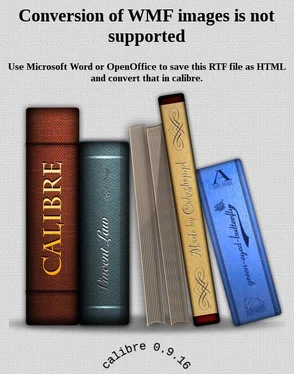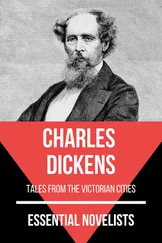Charles Dickens - Speeches - Literary & Social
Здесь есть возможность читать онлайн «Charles Dickens - Speeches - Literary & Social» весь текст электронной книги совершенно бесплатно (целиком полную версию без сокращений). В некоторых случаях можно слушать аудио, скачать через торрент в формате fb2 и присутствует краткое содержание. Жанр: Классическая проза, на английском языке. Описание произведения, (предисловие) а так же отзывы посетителей доступны на портале библиотеки ЛибКат.
- Название:Speeches: Literary & Social
- Автор:
- Жанр:
- Год:неизвестен
- ISBN:нет данных
- Рейтинг книги:5 / 5. Голосов: 1
-
Избранное:Добавить в избранное
- Отзывы:
-
Ваша оценка:
- 100
- 1
- 2
- 3
- 4
- 5
Speeches: Literary & Social: краткое содержание, описание и аннотация
Предлагаем к чтению аннотацию, описание, краткое содержание или предисловие (зависит от того, что написал сам автор книги «Speeches: Literary & Social»). Если вы не нашли необходимую информацию о книге — напишите в комментариях, мы постараемся отыскать её.
Speeches: Literary & Social — читать онлайн бесплатно полную книгу (весь текст) целиком
Ниже представлен текст книги, разбитый по страницам. Система сохранения места последней прочитанной страницы, позволяет с удобством читать онлайн бесплатно книгу «Speeches: Literary & Social», без необходимости каждый раз заново искать на чём Вы остановились. Поставьте закладку, и сможете в любой момент перейти на страницу, на которой закончили чтение.
Интервал:
Закладка:
When I add that this Benevolent Fund makes no pretensions to gentility, squanders no treasure in keeping up appearances, that it considers that the money given for the widow and the orphan, should really be held for the widow and the orphan, I think I have exhausted the case, which I desire most strenuously to commend to you.
Perhaps you will allow me to say one last word. I will not consent to present to you the professors of Art as a set of helpless babies, who are to be held up by the chin; I present them as an energetic and persevering class of men, whose incomes depend on their own faculties and personal exertions; and I also make so bold as to present them as men who in their vocation render good service to the community. I am strongly disposed to believe there are very few debates in Parliament so important to the public welfare as a really good picture. I have also a notion that any number of bundles of the driest legal chaff that ever was chopped would be cheaply expended for one really meritorious engraving. At a highly interesting annual festival at which I have the honour to assist, and which takes place behind two fountains, I sometimes observe that great ministers of state and other such exalted characters have a strange delight in rather ostentatiously declaring that they have no knowledge whatever of art, and particularly of impressing on the company that they have passed their lives in severe studies. It strikes me when I hear these things as if these great men looked upon the arts as a sort of dancing dogs, or Punch's show, to be turned to for amusement when one has nothing else to do. Now I always take the opportunity on these occasions of entertaining my humble opinion that all this is complete "bosh;" and of asserting to myself my strong belief that the neighbourhoods of Trafalgar Square, or Suffolk Street, rightly understood, are quite as important to the welfare of the empire as those of Downing Street, or Westminster Hall. Ladies and Gentlemen, on these grounds, and backed by the recommendation of three hundred artists in favour of the Benevolent Fund, I beg to propose its prosperity as a toast for your adoption.
SPEECH LI
The Farewell Reading. St. James's Hall, March 15, 1870
With the "Christmas Carol" and "The Trial from Pickwick," Mr. Charles Dickens brought to a brilliant close the memorable series of public readings which have for sixteen years proved to audiences unexampled in numbers, the source of the highest intellectual enjoyment. Every portion of available space in the building was, of course, last night occupied some time before the appointed hour; but could the St. James's Hall have been specially enlarged for the occasion to the dimensions of Salisbury Plain, it is doubtful whether sufficient room would even then have been provided for all anxious to seize the last chance of hearing the distinguished novelist give his own interpretation of the characters called into existence by his own creative pen. As if determined to convince his auditors that, whatever reason had influenced his determination, physical exhaustion was not amongst them, Mr. Dickens never read with greater spirit and energy. His voice to the last retained its distinctive clearness, and the transitions of tone, as each personage in the story, conjured up by a word, rose vividly before the eye, seemed to be more marvellous than ever. The vast assemblage, hushed into breathless attention, suffered not a syllable to escape the ear, and the rich humour and deep pathos of one of the most delightful books ever written found once again the fullest appreciation. The usual burst of merriment responsive to the blithe description of Bob Cratchit's Christmas day, and the wonted sympathy with the crippled child "Tiny Tim," found prompt expression, and the general delight at hearing of Ebenezer Scrooge's reformation was only checked by the saddening remembrance that with it the last strain of the "carol" was dying away. After the "Trial from Pickwick," in which the speeches of the opposing counsel, and the owlish gravity of the judge, seemed to be delivered and depicted with greater dramatic power than ever, the applause of the audience rang for several minutes through the hall, and when it had subsided, Mr. Dickens, with evidently strong emotion, but in his usual distinct and expressive manner, spoke as follows:-
LADIES AND GENTLEMEN, - It would be worse than idle - for it would be hypocritical and unfeeling - if I were to disguise that I close this episode in my life with feelings of very considerable pain. For some fifteen years, in this hall and in many kindred places, I have had the honour of presenting my own cherished ideas before you for your recognition, and, in closely observing your reception of them, have enjoyed an amount of artistic delight and instruction which, perhaps, is given to few men to know. In this task, and in every other I have ever undertaken, as a faithful servant of the public, always imbued with a sense of duty to them, and always striving to do his best, I have been uniformly cheered by the readiest response, the most generous sympathy, and the most stimulating support. Nevertheless, I have thought it well, at the full flood-tide of your favour, to retire upon those older associations between us, which date from much further back than these, and henceforth to devote myself exclusively to the art that first brought us together. Ladies and gentlemen, in but two short weeks from this time I hope that you may enter, in your own homes, on a new series of readings, at which my assistance will be indispensable; but from these garish lights I vanish now for evermore, with a heartfelt, grateful, respectful, and affectionate farewell.
Amidst repeated acclamations of the most enthusiastic description, whilst hats and handkerchiefs were waving in every part of the hall, Mr. Charles Dickens retired, withdrawing with him one of the greatest intellectual treats the public ever enjoyed.
SPEECH LII
The Newsvendors' Institution, London, April 5, 1870
The annual dinner in aid of the funds of the Newsvendors' Benevolent and Provident Institution was held on the above evening, at the Freemason's Tavern. Mr. Charles Dickens presided, and was supported by the Sheriffs of the City of London and Middlesex.
After the usual toasts had been given and responded to,
The Chairman said that if the approved order of their proceedings had been observed, the Corporation of the City of London would no doubt have considered themselves snubbed if they were not toasted by themselves. He was sure that a distinguished member of the Corporation who was present would tell the company what the Corporation were going to do; and he had not the slightest doubt they were going to do something highly creditable to themselves, and something highly serviceable to the whole metropolis; and if the secret were not at present locked up in the blue chamber, they would be all deeply obliged to the gentleman who would immediately follow him, if he let them into it in the same confidence as he had observed with respect to the Corporation of the City of London being snubbed. He begged to give the toast of "The Corporation of the City of London."
Mr. Alderman Cotton, in replying to the toast, said for once, and once only, had their chairman said an unkind word about the Corporation of London. He had always reckoned Mr. Dickens to be one of the warmest friends of the Corporation; and remembering that he (Mr. Dickens) did really go through a Lord Mayor's Show in a Lord Mayor's carriage, if he had not felt himself quite a Lord Mayor, he must have at least considered himself next to one.
In proposing the toast of the evening Mr, Dickens said:-
Читать дальшеИнтервал:
Закладка:
Похожие книги на «Speeches: Literary & Social»
Представляем Вашему вниманию похожие книги на «Speeches: Literary & Social» списком для выбора. Мы отобрали схожую по названию и смыслу литературу в надежде предоставить читателям больше вариантов отыскать новые, интересные, ещё непрочитанные произведения.
Обсуждение, отзывы о книге «Speeches: Literary & Social» и просто собственные мнения читателей. Оставьте ваши комментарии, напишите, что Вы думаете о произведении, его смысле или главных героях. Укажите что конкретно понравилось, а что нет, и почему Вы так считаете.












